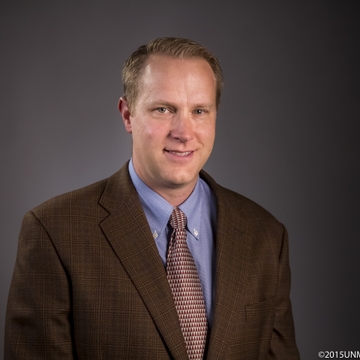New Mexico Approves Master of Science in Anesthesia Program at UNM

Closing the Gap
UNM’s KL2 Scholar Program Helps Turn Discoveries Into Cures
Since 2010, UNM's Clinical & Translational Science Center (CTSC) has been on a mission to enhance the transfer of research from laboratories to clinical practice and out into communities. Its KL2 mentored clinical research scholars, supported by the National Institutes of Health Clinical and Translational Science Awards Program, are playing a key role.
"The goal is to provide junior faculty assistant professors with some guaranteed funding and protected time so they can pursue translational research," says Matthew Campen, PhD, UNM's current KL2 director and professor in the College of Pharmacy. "We have four slots at any given time."
When there is an opening, the KL2 program interviews candidates from inside and outside the state. Ideal candidates are health professionals with a doctoral degree (e.g., PhD, MD-PhD, PharmD, MD or equivalent), with a minimum of two years of post-terminal degree research experience. KL2 scholars are expected to obtain extramural funding while in the program and they commit to a career in translational research.
Successful candidates generate a plan for a clinical and translational research project - this is a crucial part of the selection process.
"A lot of times we only do basic science work that is far removed from patients," Campen says, "while this program centers on the clinic, and our investigators focus on research questions that are in immediate need by the community."
Currently, UNM has four KL2 scholars. Eliseo Castillo, PhD, (FY17-present) studies immunity in the gut. Kathryn Frietze, PhD, (FY18-present) tries to transform antibody responses into targeted therapeutic or prophylactic interventions for infectious and chronic diseases. Brandi Fink, PhD (FY14-present) works to understand the roles of alcohol use in intimate partner violence. Justin Baca, MD, PhD, (FY18-present) tests the efficacy of novel point-of-care devices through clinical trials in the Emergency Department.
The program has a multi-disciplinary, collaborative advisory committee, and each scholar has two mentors: one who works with basic science, and the other with clinical science.
"Diseases are multifactorial," Campen explains, "so we want our scholars to work in a multi-disciplinary setting to solve translational research questions. We encourage to embrace the complexities of those questions and take that perspective forward into their careers."
KL2 Mentored Clinical Research Scholar Awards promote the career development of junior faculty and help them become the next generation of translational researchers. The NIH keeps track of how many of them are still doing clinical translational research.
"Our statistics so far show 100% success," Campen says. "All our scholars are still doing translational research. Most of them work in UNM and are leaders in the program."